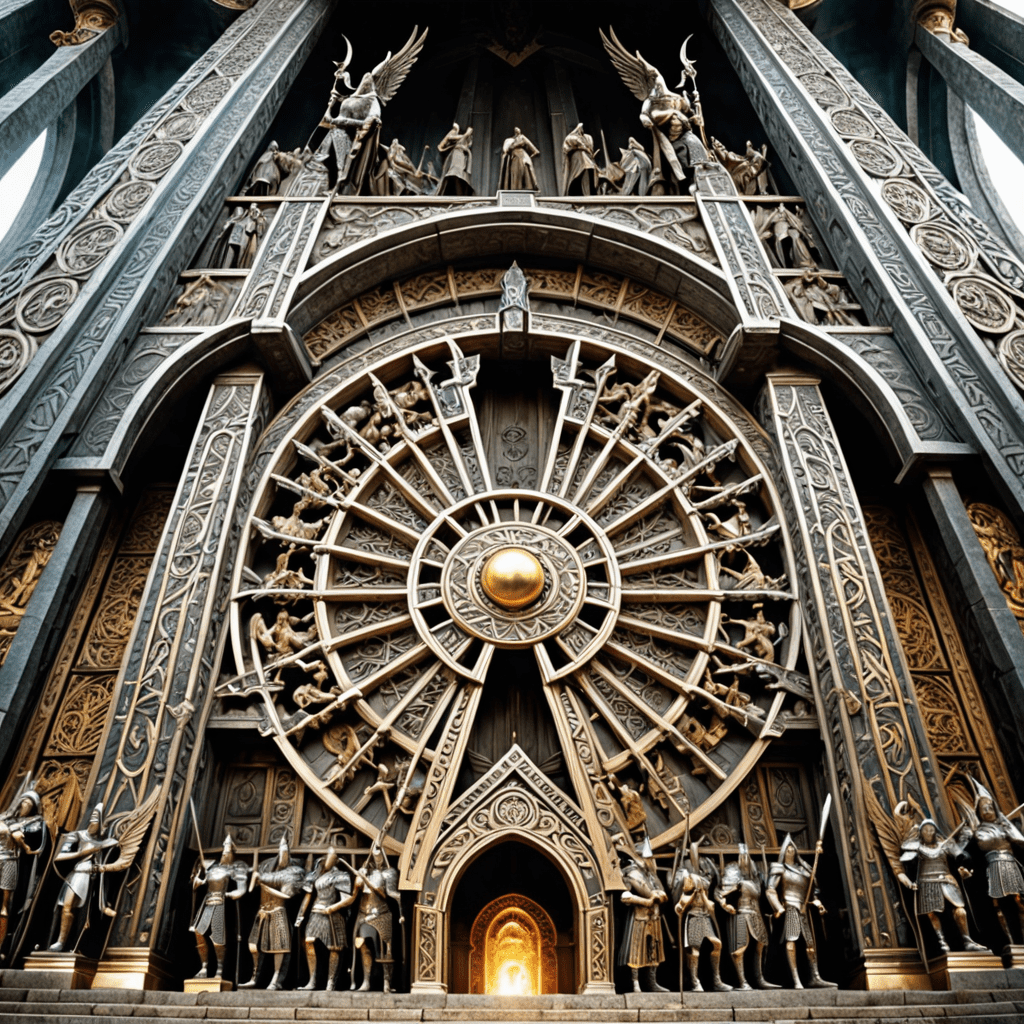Moral Myths That Resonate Today: Timeless Lessons from Legends
I. Introduction
Moral myths are narratives that embody ethical lessons, cultural values, and social norms. They serve as guiding principles for behavior and decision-making within a community. Throughout history, these legends have shaped moral frameworks, providing individuals with a sense of right and wrong.
This article aims to explore the timeless lessons embedded in moral myths from various cultures, highlighting their significance in contemporary society. By examining these narratives, we can uncover the universal themes that resonate across generations and cultures.
II. The Role of Myths in Human Culture
Myths have played a crucial role in human culture, providing a shared narrative that helps people understand their place in the world. Historically, myths have evolved alongside societies, reflecting their values, fears, and aspirations.
- Historical context: Myths have existed since ancient times, forming the foundation of religious beliefs and cultural practices.
- Psychological functions: They help individuals cope with existential questions and societal challenges.
- Social functions: Myths create a sense of belonging, fostering community bonds and shared identities.
Through storytelling, myths convey moral and ethical lessons, guiding behavior and shaping societal norms across generations. They serve as tools for teaching the values that are essential for harmonious living.
III. The Hero’s Journey: A Universal Template
Joseph Campbell’s concept of the monomyth, or the Hero’s Journey, outlines a universal narrative structure found in myths worldwide. This framework illustrates a hero’s transformation through various stages, including departure, initiation, and return.
Examples of heroic figures include:
- Hercules: A symbol of strength and bravery in Greek mythology.
- Siddhartha Gautama (Buddha): A journey from prince to enlightened being in Buddhist lore.
- Moses: Leading his people to freedom in Jewish tradition.
The hero’s journey imparts several moral lessons, such as the importance of resilience, self-discovery, and the responsibility that comes with power. These lessons resonate with individuals navigating their own life challenges.
IV. The Parables of Aesop: Fables with Enduring Wisdom
Aesop’s Fables, originating from ancient Greece, are a collection of short stories featuring animals that convey moral lessons. These fables have stood the test of time due to their simplicity and relevance.
Some notable fables include:
- The Tortoise and the Hare: Teaches the value of perseverance over arrogance.
- The Boy Who Cried Wolf: Highlights the consequences of lying.
- The Ant and the Grasshopper: Emphasizes the importance of hard work and preparation.
The lessons from Aesop’s Fables remain relevant in contemporary society, reminding us of the virtues of honesty, diligence, and humility.
V. Indigenous Myths and Their Moral Implications
Indigenous myths, such as those from Native American, African, and Aboriginal cultures, provide profound insights into community, nature, and spirituality. These narratives often emphasize the interconnectedness of all living beings and the importance of respecting the earth.
Key lessons from indigenous myths include:
- Community and cooperation: Many myths highlight the necessity of working together for the greater good.
- Respect for nature: Stories often teach the importance of living harmoniously with the environment.
- Spiritual connection: Myths convey the idea that all life is sacred and interconnected.
Preserving these narratives is crucial for moral education, as they offer alternative perspectives on ethics and humanity’s role in the world.
VI. Greek and Roman Legends: Morality in Mythology
Greek and Roman mythology is rich with stories that explore human nature, morality, and the consequences of one’s actions. Key myths, such as those of Prometheus and Hercules, provide deep moral implications.
For example:
- Prometheus: His act of giving fire to humanity represents the pursuit of knowledge and the potential for rebellion against tyranny.
- Hercules: His twelve labors symbolize the struggle against adversity and the importance of courage and perseverance.
The interplay of fate, choice, and consequence in these myths teaches valuable lessons applicable to modern ethical dilemmas, reminding us that our actions have far-reaching effects.
VII. Eastern Philosophies: Lessons from Asian Myths
Asian myths, especially those from Hinduism, Buddhism, and Chinese folklore, offer rich moral teachings. Figures like Buddha and Confucius provide insights into ethics, compassion, and wisdom.
Key teachings include:
- Non-attachment: A core Buddhist principle advocating for a balanced approach to life.
- The Golden Rule: Confucian ethics emphasize treating others as one wishes to be treated.
- Dharma: In Hinduism, the concept of duty and righteousness guides individuals in their moral choices.
These teachings remain relevant in today’s globalized world, encouraging ethical behavior and mutual respect among diverse cultures.
VIII. The Influence of Religious Myths on Morality
Religious myths in Christianity, Islam, and Judaism have profoundly influenced moral behavior and societal values. These narratives often provide clear moral guidelines and commandments that shape followers’ lives.
For instance:
- The Good Samaritan: A parable in Christianity that teaches compassion and helping others.
- The Five Pillars of Islam: Foundations that guide moral conduct and social responsibility.
- The Ten Commandments: Ethical directives in Judaism that outline fundamental moral principles.
These myths continue to resonate, serving as moral compasses for millions around the world.
IX. The Modern Adaptation of Moral Myths
In contemporary society, traditional myths are often retold in literature and media, adapting timeless lessons to modern contexts. Films, books, and other forms of storytelling reinterpret these narratives, making them accessible to new generations.
Examples include:
- Film adaptations: Movies like “The Lion King” echo themes from Hamlet and Aesop’s Fables.
- Literature: Novels such as “Circe” by Madeline Miller reimagine Greek myths for modern readers.
- Video games: Many games draw on mythological themes, exploring moral choices and consequences.
These adaptations help society reinterpret and redefine moral lessons, ensuring they remain relevant in a rapidly changing world.
X. Conclusion
Moral myths have endured throughout history, providing timeless lessons that resonate today. From the hero’s journey to the fables of Aesop, these narratives shape our moral frameworks and guide our behavior. As we explore the rich tapestry of myths from various cultures, we uncover universal themes that remind us of our shared humanity and the ethical principles that unite us.
By preserving and engaging with these moral myths, we can continue to draw wisdom from the past, fostering a more compassionate and ethical society for future generations.



